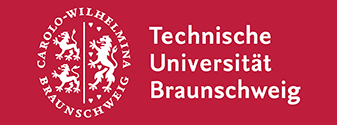Leibniz University Hannover
At Leibniz University there are currently almost 30,000 students studying in nine faculties, and some 3,100 researchers working in more than 180 institutes. The main building of the university is the Royal Palace Welfenschloss at the Welfengarten. Our internationally visible core research topics are in mechanical engineering, in quantum optics and gravitational physics, in biomedical research and in teacher training.
Technical University of Braunschweig
The Technical University of Braunschweig is a medium-sized university in Germany with about 20,000 students in 71 study courses. It goes back to the Collegium Carolinum founded in 1745 and thus has the longest tradition among the technical universities in Germany. The university is a member of the association of the nine leading technical universities in Germany. Their core research areas are “Metrology”, “Future City”, Mobility” and “Infection and Therapeutics”.
Physikalisch-Technische Bundesanstalt
PTB is the National Metrology Institute of Germany with scientific and technical service tasks. PTB measures with the highest accuracy and reliability – metrology as the core competence. PTB stands for progress and reliability in metrology for the benefit of society, trade and industry, and science.
Albert Einstein Institute
In Hannover, the Max Planck Institute for Gravitational Physics (Albert Einstein Institute) cooperates closely with the Institute for Gravitational Physics of the Leibniz Universität Hannover. Both play a decisive role in the development of gravitational wave astronomy. Construction, operation and further development of the gravitational wave detector GEO600 in strong collaboration with the global network of the other large gravitational-wave detectors are some of the institutes' fields of work. The AEI also plays a leading role in the preparation of the satellite missions LISA Pathfinder, LISA, and GRACE Follow-on. All these require research in laser physics, quantum optics, control systems and gravitational physics.
Laser Zentrum Hannover e.V.
Light for Innovation - as an independent, non-profit research institute for photonics and laser technology, the Laser Zentrum Hannover e.V. (LZH) stands for innovative research, development and consulting. The LZH was founded in 1986 with the aim of conducting interdisciplinary research and development in the area of laser technology, bringing together research and practice, and training skilled workers in an industry-oriented manner. The interdisciplinary collaboration between scientists and engineers enables innovative approaches in various areas: from component development for laser applications, for example for medical technology or lightweight construction in the automotive sector. Currently, almost 200 employees are working at the LZH. The LZH is funded by the Niedersachsen Ministry of Economic Affairs, Employment, Transport and Digitalisation.
Center of Applied Space Technology and Microgravity



The Center of Applied Space Technology and Microgravity (ZARM) is an institute of the faculty of Production Engineering at the University of Bremen. The institute was founded in September 1985 and focused initially on the investigation of flow phenomena under microgravity conditions and the development of space technology. Today ZARM is an internationally recognized research center with multidisciplinary expertise in fluid mechanics, space technology and space science. The research at ZARM covers experimental, theoretical and computational approaches to fundamental scientific questions, as well as the development of technology for space missions and microgravity experiments (for example on the International Space Station). ZARM employs more than 100 scientists, engineers and administrative staff and hosts many students from the faculty of Production Engineering, as well as from the Physical Sciences and Information Technology departments.
















